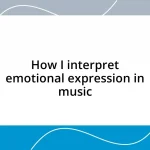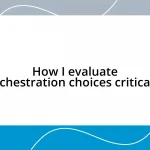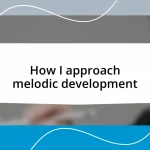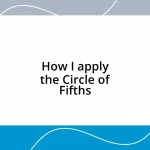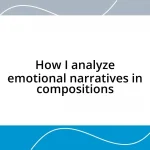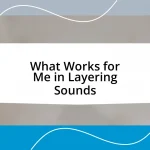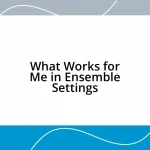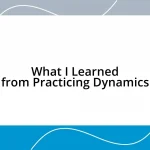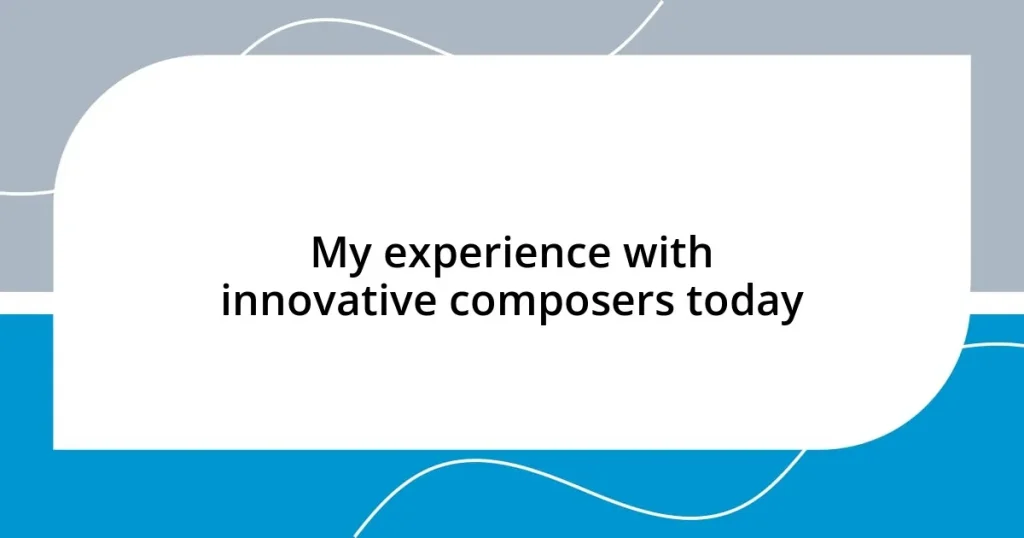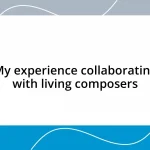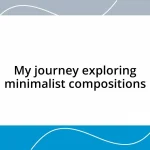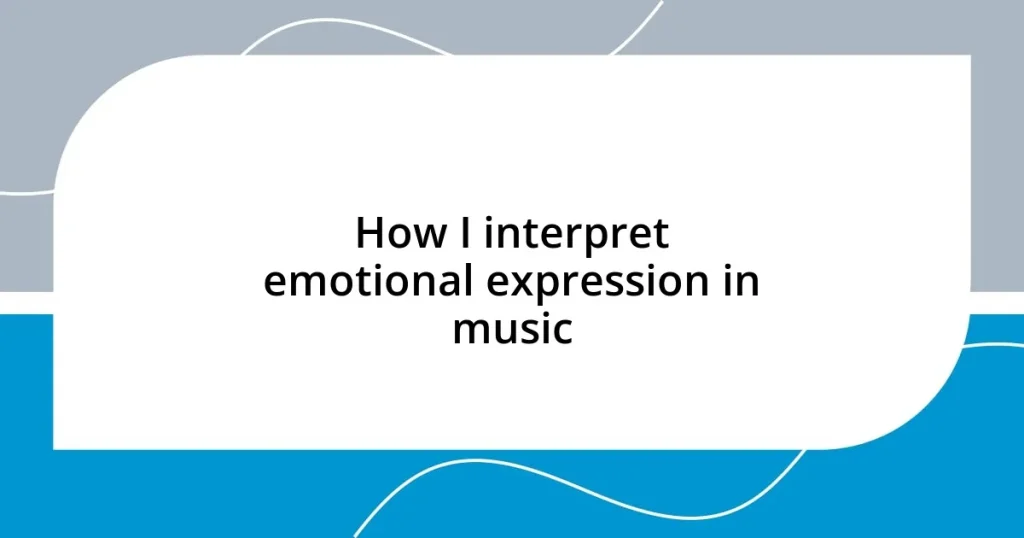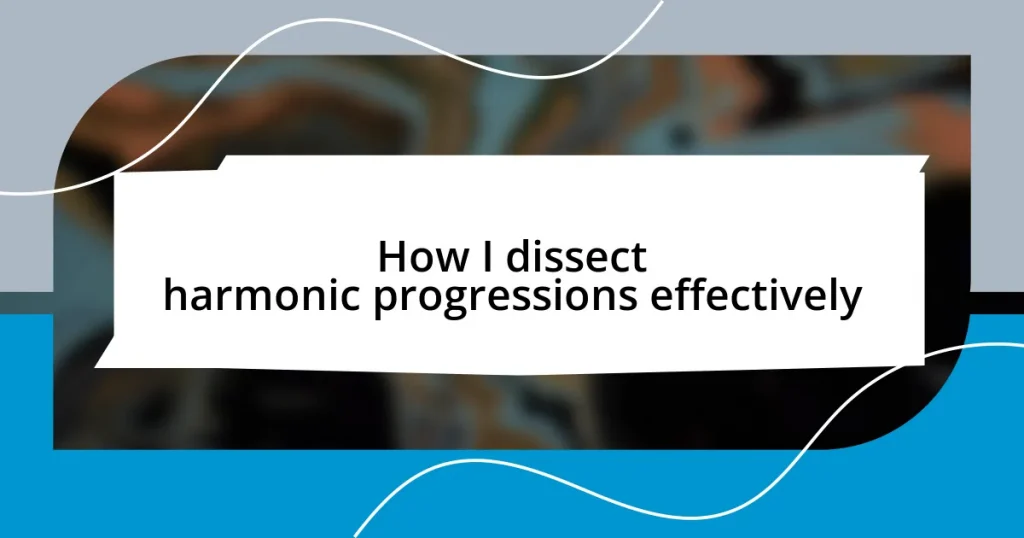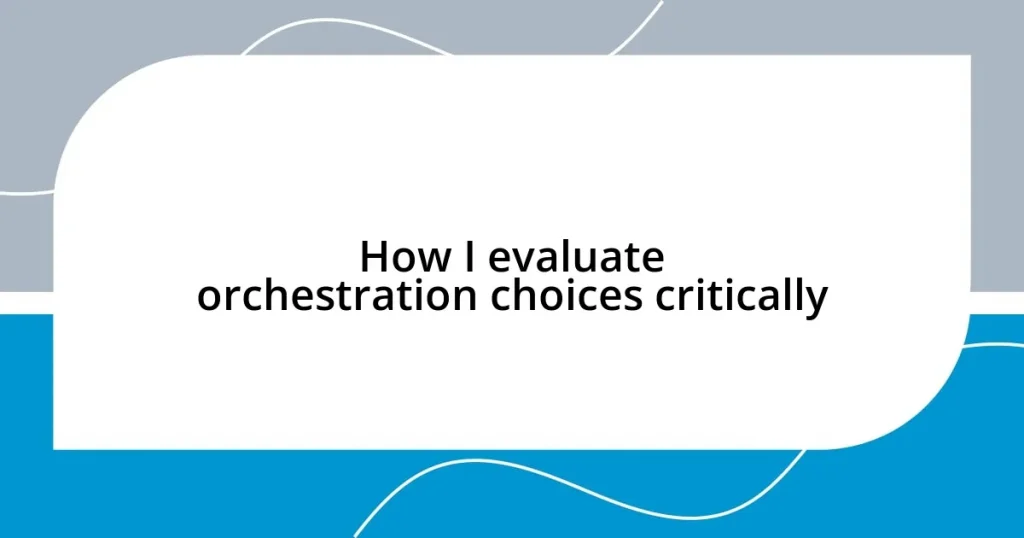Key takeaways:
- Experiencing innovative compositions led to a deeper understanding of music’s emotional and narrative dimensions.
- Collaboration with emerging artists fosters creativity and unique artistic exchanges, enhancing personal growth.
- Technology’s role in music is evolving, with tools like AI and immersive experiences reshaping creative processes.
- Future trends in music emphasize sustainability and community engagement, reflecting a growing awareness of environmental impact.
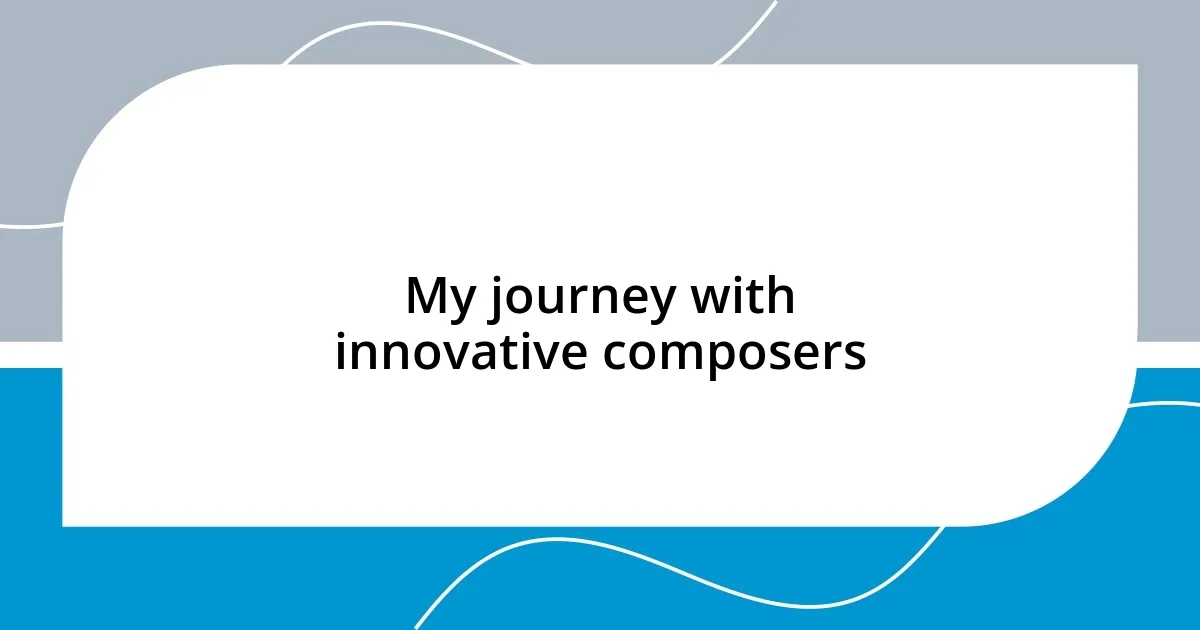
My journey with innovative composers
My journey with innovative composers has truly transformed my understanding of music. I still remember the first time I heard a piece that merged classical techniques with modern electronic sounds; it felt like a revelation. How could so many genres coexist and yet create something unique and beautiful? That experience sparked my curiosity and led me to explore composers who break boundaries, constantly seeking to understand their creative processes.
One memorable moment was attending a live performance by a young composer who used unconventional instruments. The energy in the room was electric. There’s something magical about witnessing a piece come to life, knowing that it was crafted from a completely fresh perspective. I found myself asking, what drives these composers to venture into the unknown? This questioning set me on a path of discovery, where I sought to learn not only about their music but also the stories behind their innovative approaches.
I’ve also had the privilege of exchanging ideas with several emerging composers in various digital spaces. These interactions are often fascinating; they share their inspirations, which range from nature to technology, and it makes me reflect on how our environment shapes creativity. Each dialogue reignites my passion for music, reminding me that innovation in composition is not just about the notes but the emotions and experiences that fuel them. Have you ever felt that rush of inspiration from a new sound? I know I certainly have.
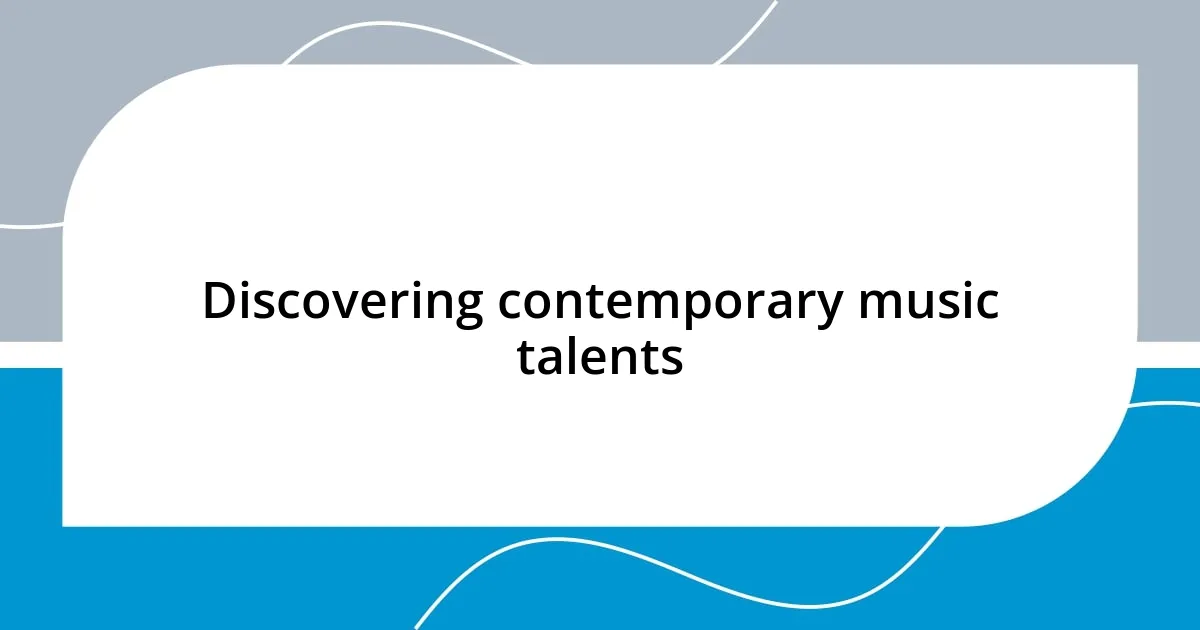
Discovering contemporary music talents
Discovering contemporary music talents has been an exhilarating journey for me. I remember stumbling upon a local composer during a small festival, their piece blending jazz improvisation with classical motifs. My heart raced as I absorbed the vibrant energy of their performance, and I felt an undeniable connection to their artistic vision. It’s incredible how the right combination of creativity and fresh perspectives can create music that resonates deeply within us.
Here are some aspects I consider crucial when exploring contemporary music talents:
- Diverse Influences: Many contemporary composers draw inspiration from a wide array of genres, which reflects our interconnected world.
- Experimental Techniques: I’ve encountered many artists who leverage technology, pushing the boundaries of traditional composition.
- Storytelling: Each composer often weaves personal and cultural narratives into their music, allowing their audience to experience something profoundly relatable.
- Community Engagement: Some talents actively involve their community in the creative process, fostering a unique sense of collaboration and shared experience.
- Live Performances: There’s nothing quite like attending a live show to feel the raw emotion that infuses their work, making it a personal experience.
Discovering these talents has opened my eyes to the ever-evolving landscape of music, and it never ceases to amaze me how their journeys mirror our own in their quest for self-expression and connection.
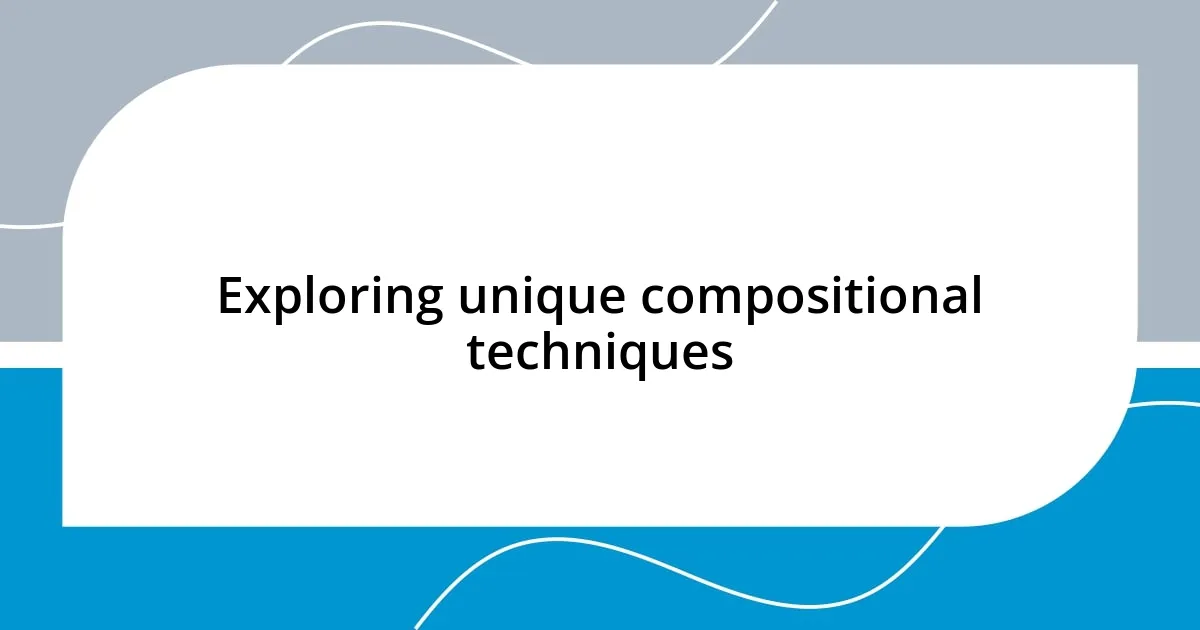
Exploring unique compositional techniques
Exploring unique compositional techniques has been a true revelation in my music journey. One standout experience was engaging with a composer who utilized live coding in their performances. It felt like watching a painter create on stage, with their music evolving in real time. I was captivated by how the structure of the piece could shift dramatically with each new line of code. This technique not only challenged my perception of composition but also made me appreciate the spontaneity and creativity in the moment.
I also discovered a fascinating composer who created an immersive soundscape by layering field recordings from urban environments. Attending one of their installations, I was enveloped in a sonic narrative that captured the essence of a city’s rhythm. It struck me how they blended environmental sounds with traditional instruments, creating an atmosphere rich in texture and feeling. Such an approach demonstrates that unique compositional techniques can lead us to explore our surroundings and give voice to the ordinary, transforming them into something extraordinary.
Innovative composers often think outside the box, experimenting with silence and space. I remember listening to a piece that emphasized pauses and silence between notes, making me acutely aware of every sound. It reminded me that music isn’t just about the notes played but about the moments we create in between. This perspective shift can evoke deep emotions, compelling listeners to reflect on their own experiences.
| Technique | Description |
|---|---|
| Live Coding | Creating music in real-time by writing code during performances. |
| Field Recordings | Incorporating natural sounds from the environment to enhance the narrative of the piece. |
| Emphasis on Silence | Using pauses strategically to create tension and reflection. |
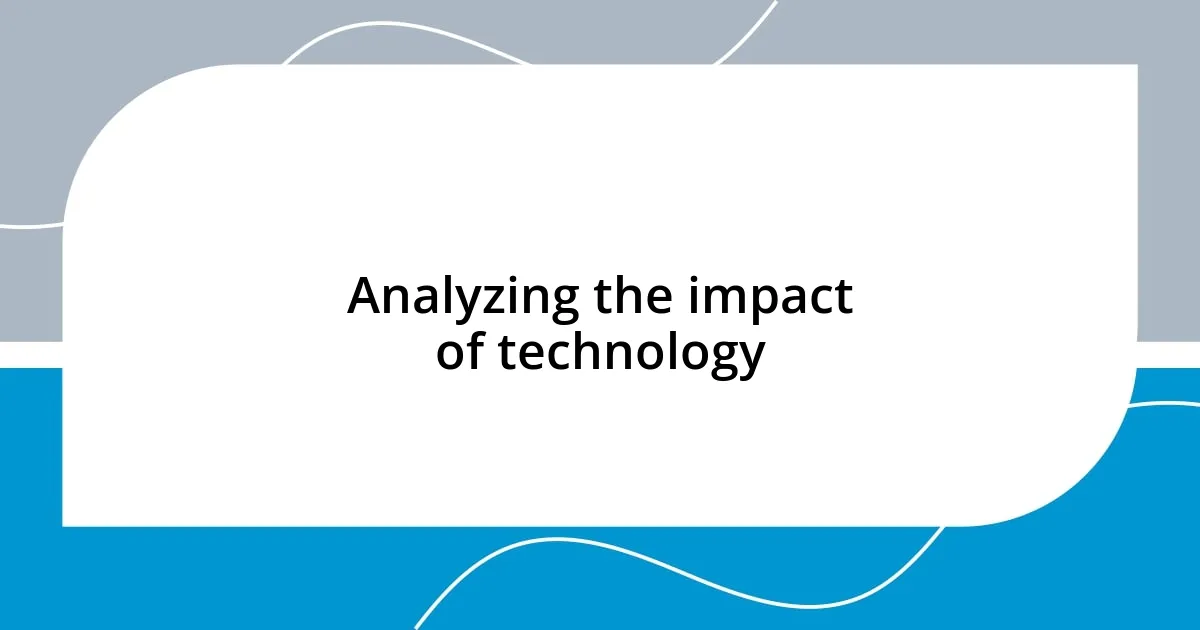
Analyzing the impact of technology
Analyzing the impact of technology on contemporary composers reveals a fascinating intersection of art and innovation. I remember attending a virtual concert where the entire performance was transmitted through augmented reality. The experience was breathtaking. It made me wonder: how does technology transform our understanding of live music? For me, it blurred the lines between performer and audience, creating a unique, shared experience that traditional formats often lack.
Furthermore, many composers are now using digital tools to experiment with sound in ways I never thought possible. I once spoke with a composer who uses algorithms to generate musical ideas. They shared how these technologies allow for unexpected surprises in their compositions. This approach made me reflect on how technology not only supports creativity but also challenges composers to step out of their comfort zones. Isn’t it exhilarating to think that the next masterpiece might come from an unexpected source, like a machine learning program?
It’s also interesting how technology has democratized music creation. With easy access to powerful software, I’ve noticed more people experimenting with music, regardless of their formal training. I met a hobbyist who crafts intricate sound collages using just their laptop and a microphone. It struck me how this shift opens doors for diverse voices and innovative ideas. By leveraging technology, we’re witnessing a blossoming of creativity that resonates with the collective human experience, and I can’t wait to see where this evolution leads us.
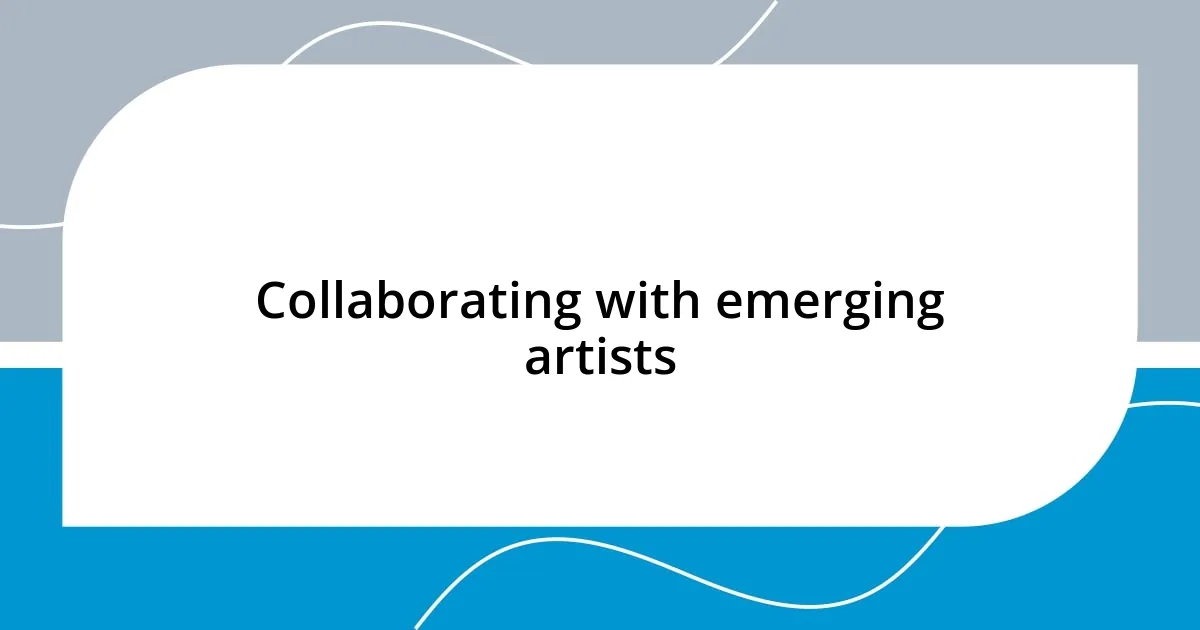
Collaborating with emerging artists
Collaborating with emerging artists has been one of the most enriching experiences in my artistic journey. I vividly remember a time when I worked with a young composer at a local workshop. They were brimming with fresh ideas and a fierce passion that was infectious. The energy during our jam sessions was electric; each of us pushed the other to try new sounds and techniques, resulting in a work that felt alive and authentic. Isn’t it inspiring when creativity flows so freely?
Engaging with these artists allows for a unique exchange of perspectives. For instance, I once teamed up with a rapper who integrated spoken word into an orchestral piece. It blew my mind how the raw emotion in their writing contrasted with the sophistication of the strings. This blending of styles not only highlighted the strengths of both genres but also taught me the importance of vulnerability in music. Have you ever found yourself surprised by how different influences can harmonize seamlessly?
What I cherish most about these collaborations is the sense of community they foster. Each session feels like a gathering of like-minded souls, bound together by a shared desire to experiment and innovate. One time, we hosted a small showcase featuring pieces we created together. Watching the audience’s reactions—some moved to tears, others clapping with excitement—reminded me of why we create in the first place. For me, it’s about connection and dialogue, and emerging artists bring a fresh lens through which to view our craft.
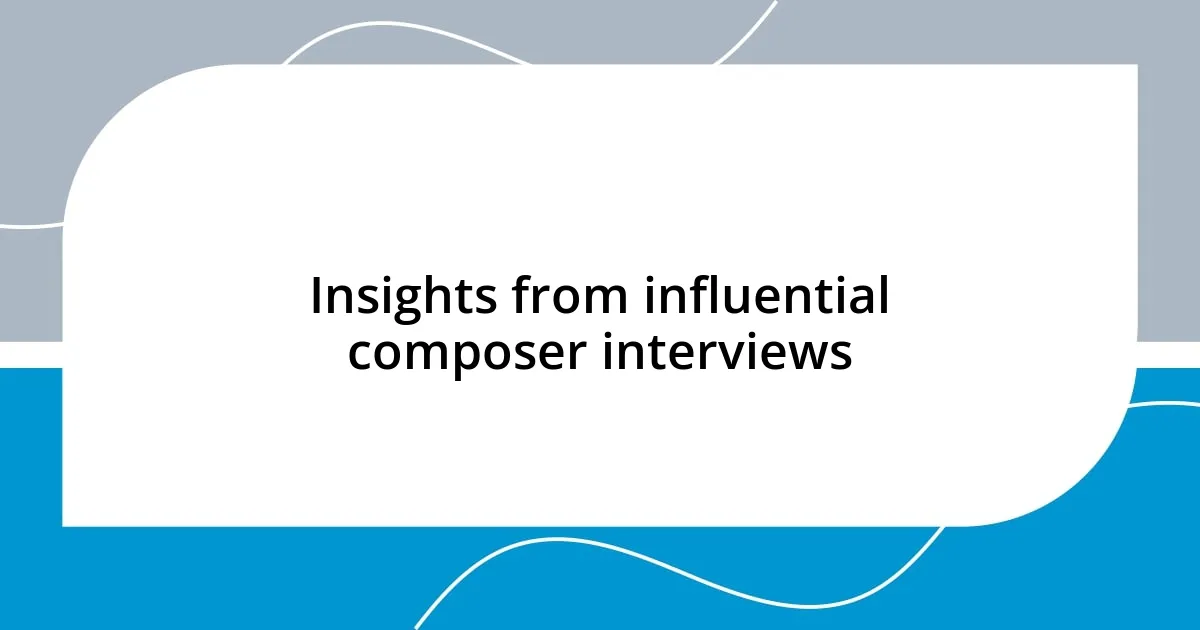
Insights from influential composer interviews
Connecting with influential composers through interviews has broadened my understanding of contemporary music. One composer I spoke with mentioned that they view failure as an essential part of the creative process. This perspective struck a chord with me; it’s easy to get caught up in perfectionism. Have you ever felt that pressure? The idea that mistakes can lead to unexpected brilliance is liberating.
During another interview, a composer opened up about their inspiration drawn from both personal experiences and societal issues. They spoke passionately about how music can serve as a form of protest, resonating deeply with some of the heart-wrenching events today. Hearing their stories reminded me that our craft has the power to reflect the world around us. Isn’t it fascinating how our life experiences shape our art?
A particularly memorable dialogue involved discussing the role of mentorship in music. This composer reflected on their own mentors and how those relationships helped clarify their artistic voice. I could relate—mentorship can illuminate pathways we might not see alone. Have you ever had someone guide you in your creative journey? It made me think about the importance of passing on knowledge and fostering a nurturing environment for the next generation of composers.
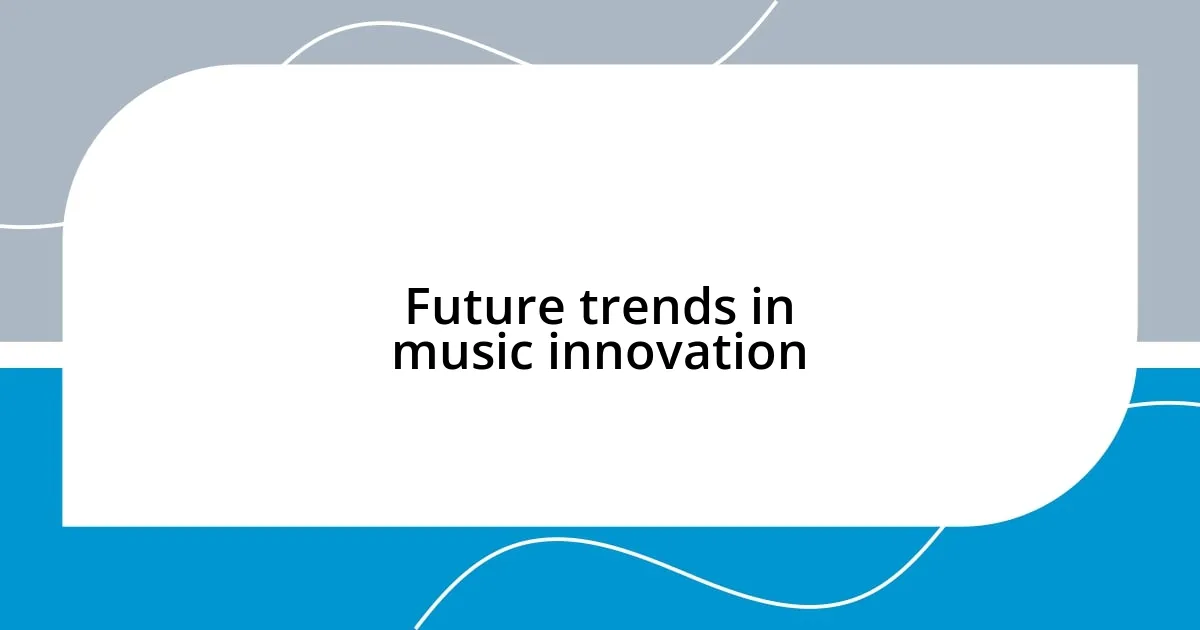
Future trends in music innovation
As I look ahead, I can’t help but notice the growing role of technology in music innovation. I recently experimented with artificial intelligence tools that compose music based on various inputs. It was fascinating to watch algorithms create melodies that fuse classical elements with contemporary beats. Have you ever thought about how machines might influence our artistic choices? This blending of human creativity and technology might just be the future soundscape we all need to explore.
One trend that really excites me is the rise of immersive experiences in music. I once attended an audio-visual concert that integrated stunning visuals with live performance. The synergy between what I saw and heard was overwhelming. It made me wonder—how can we deepen our connections to music through these multi-sensory experiences? I believe the future will see more artists venturing into these uncharted territories, challenging the ways we engage with sound.
Moreover, I see a notable shift towards sustainability in music production. Just last year, I participated in a green music festival that focused on eco-friendly materials and energy sources. The conversations around reducing our environmental impact made me reflective. Isn’t it our duty as artists to consider how our practices affect the planet? This commitment to sustainability promises to reshape the music industry fundamentally, cultivating a new generation of mindful creators.

